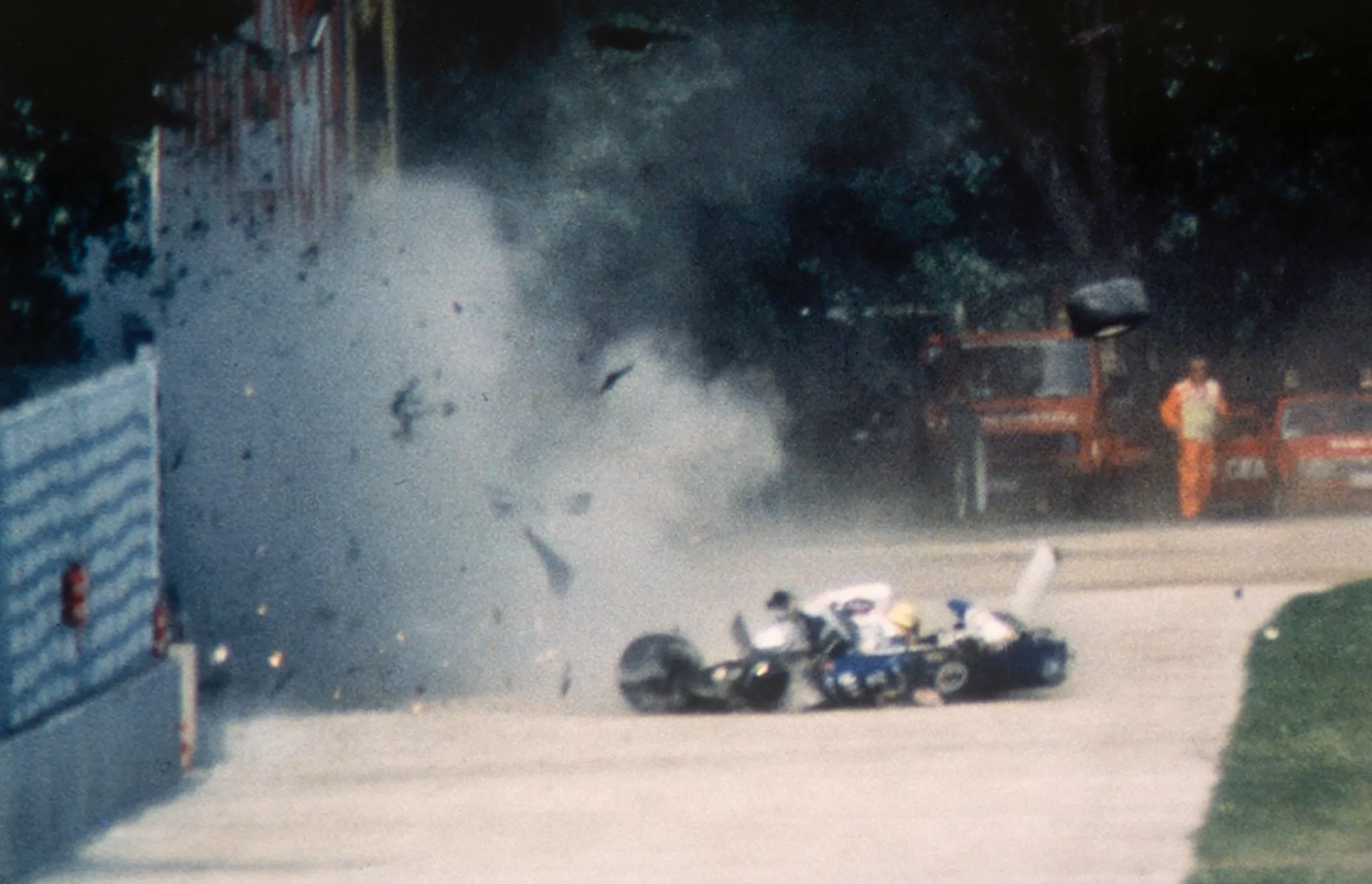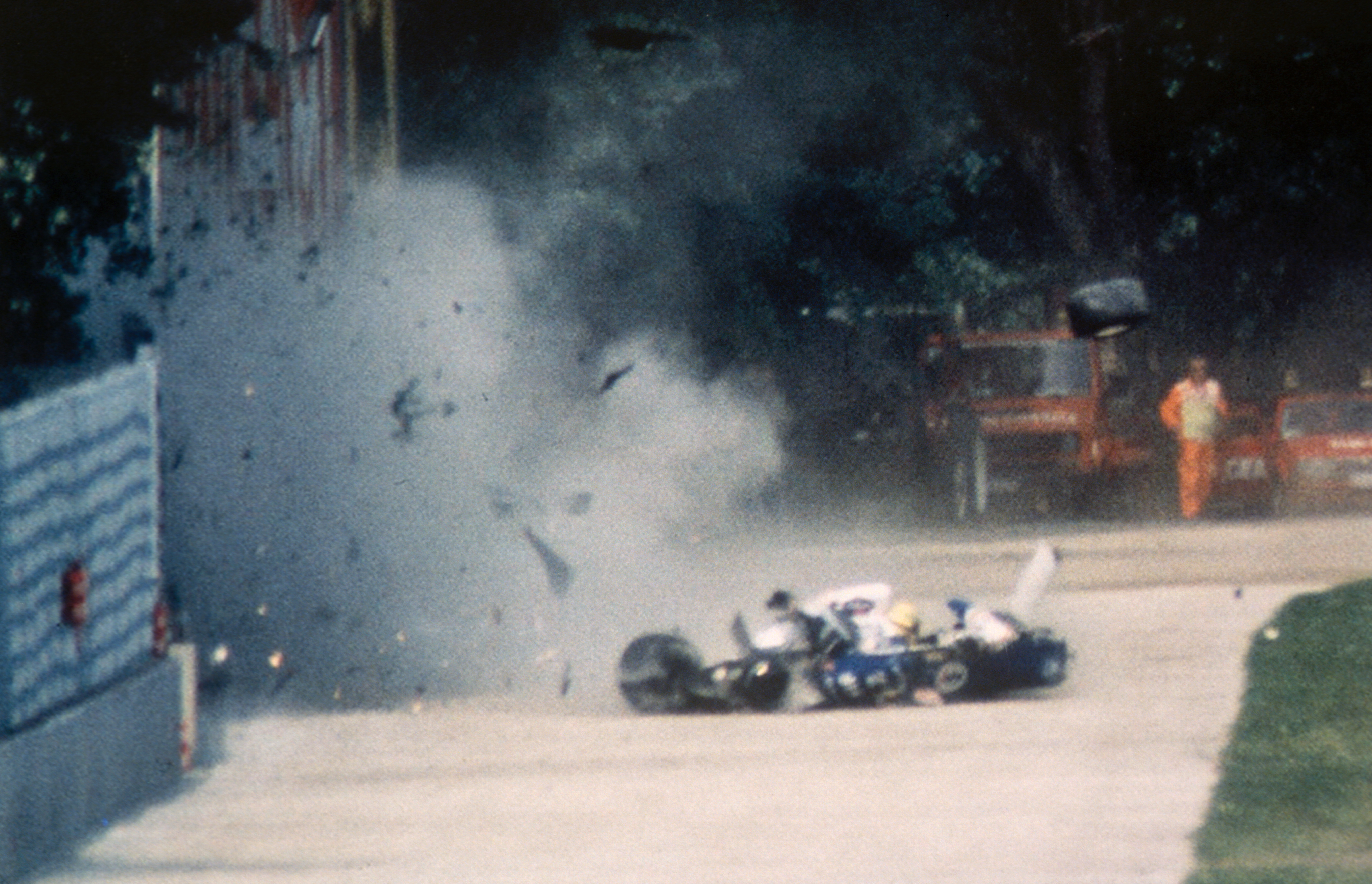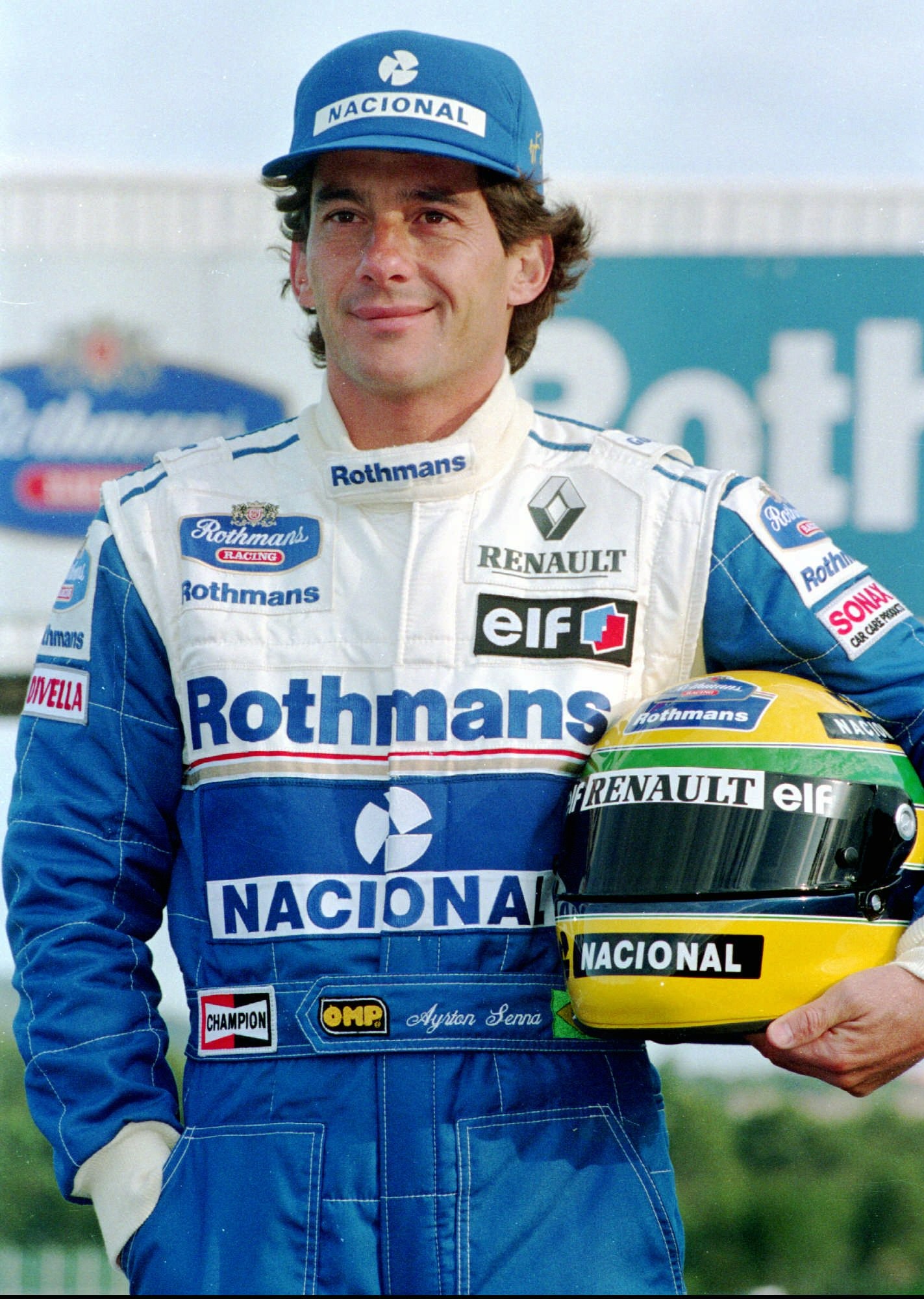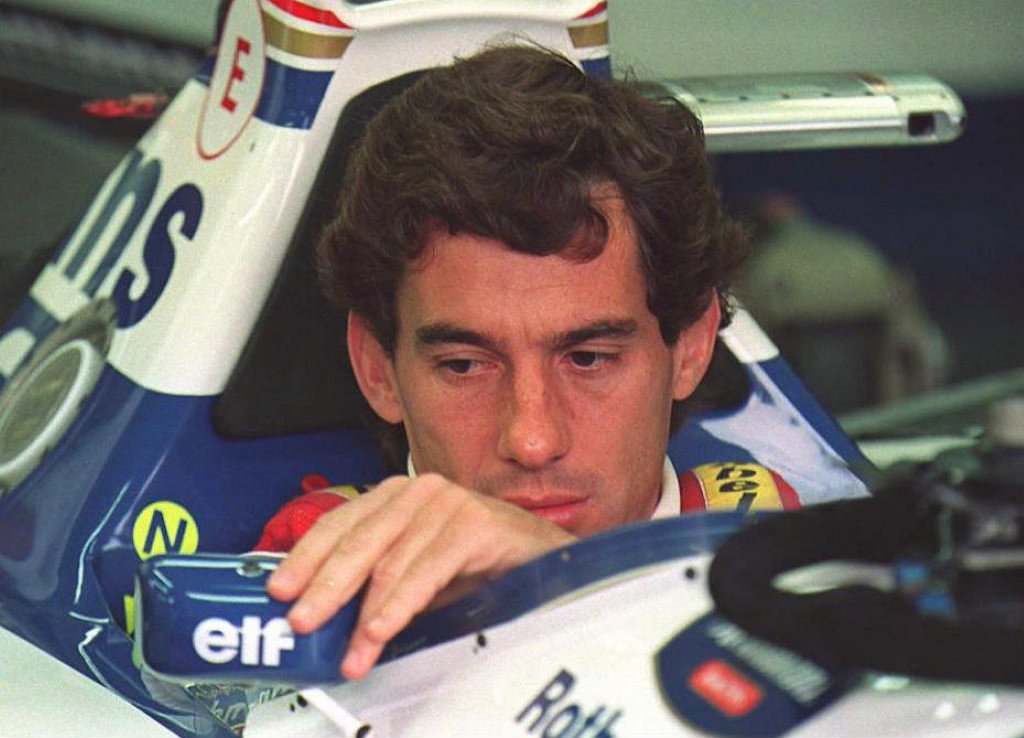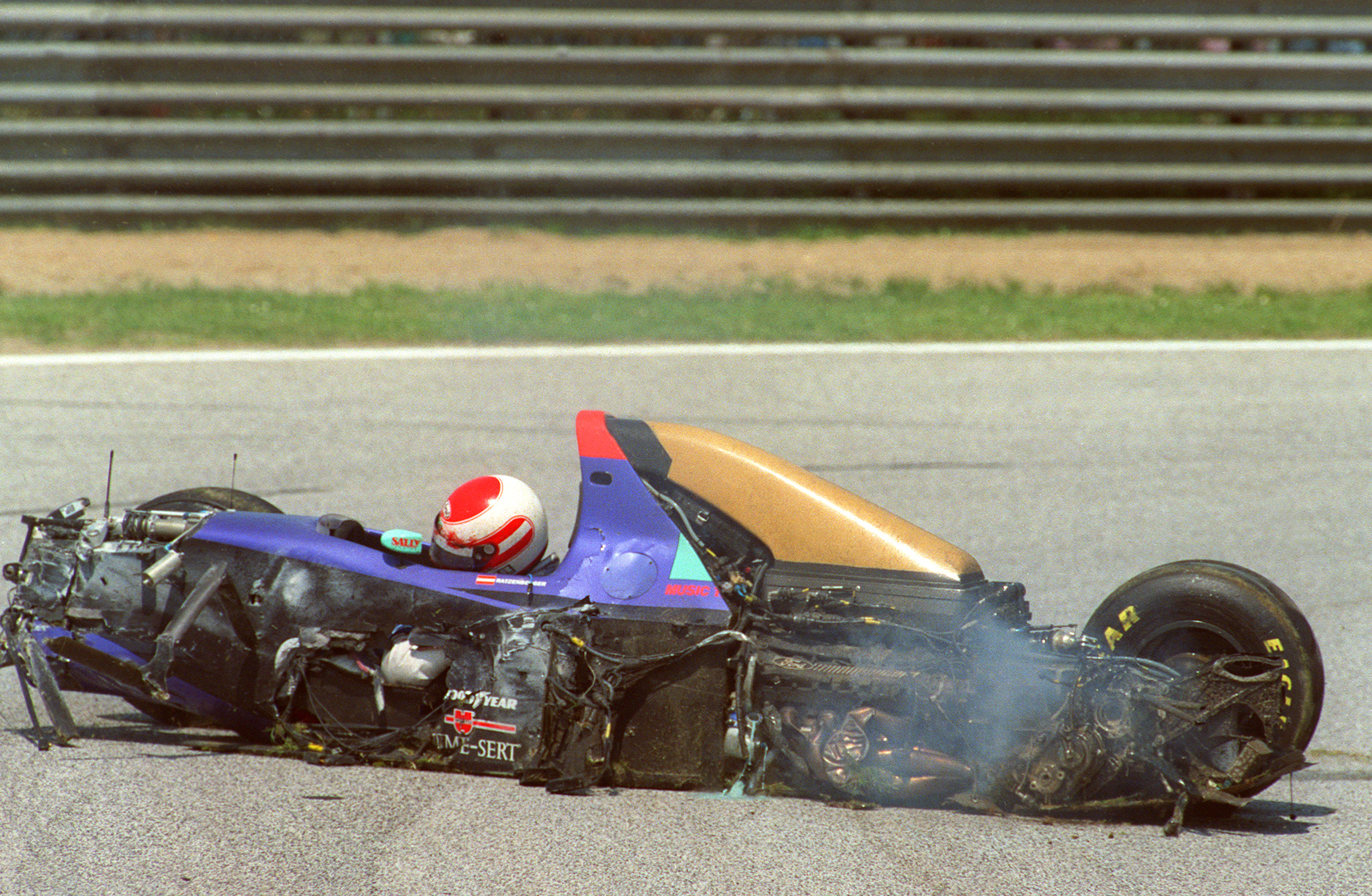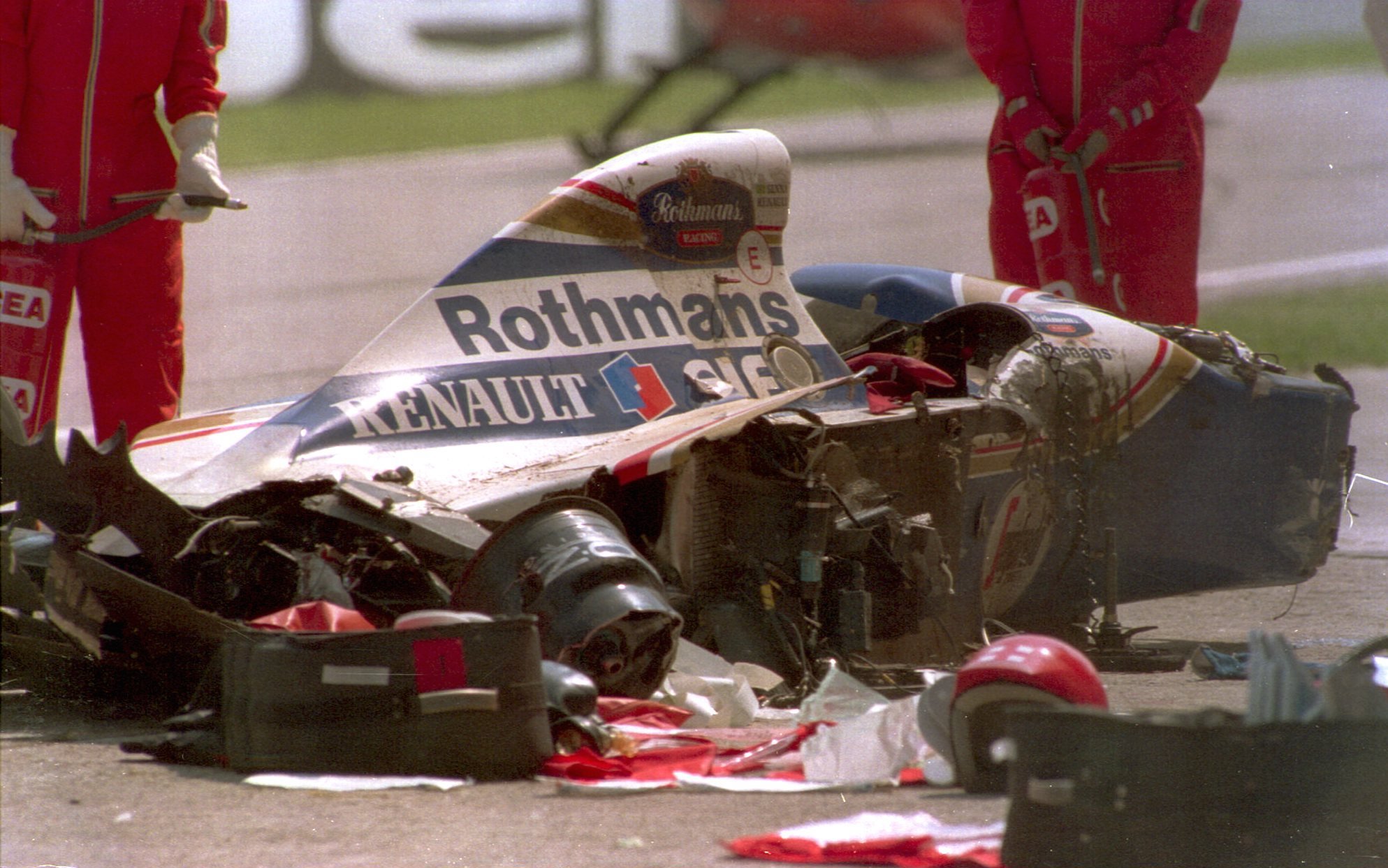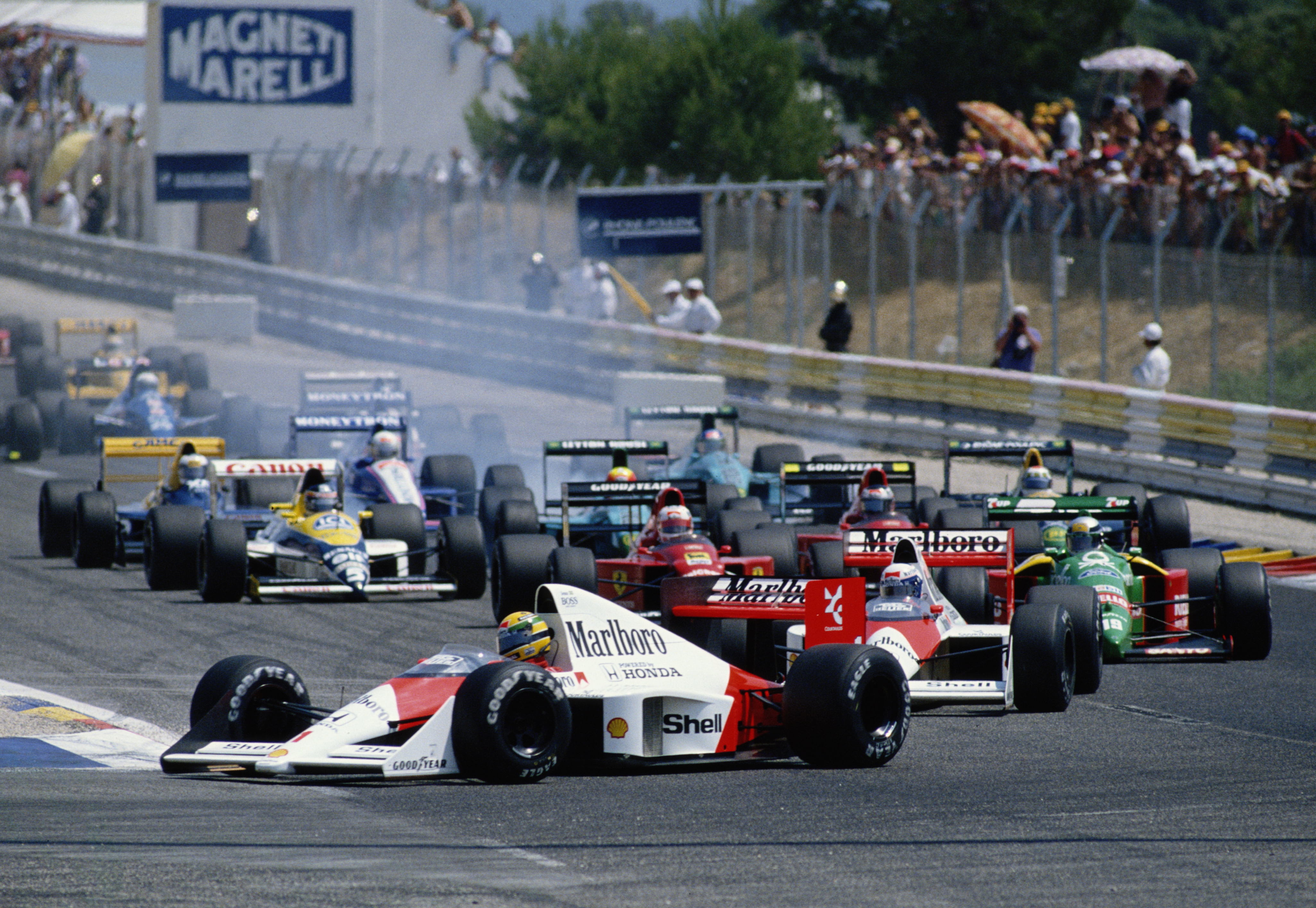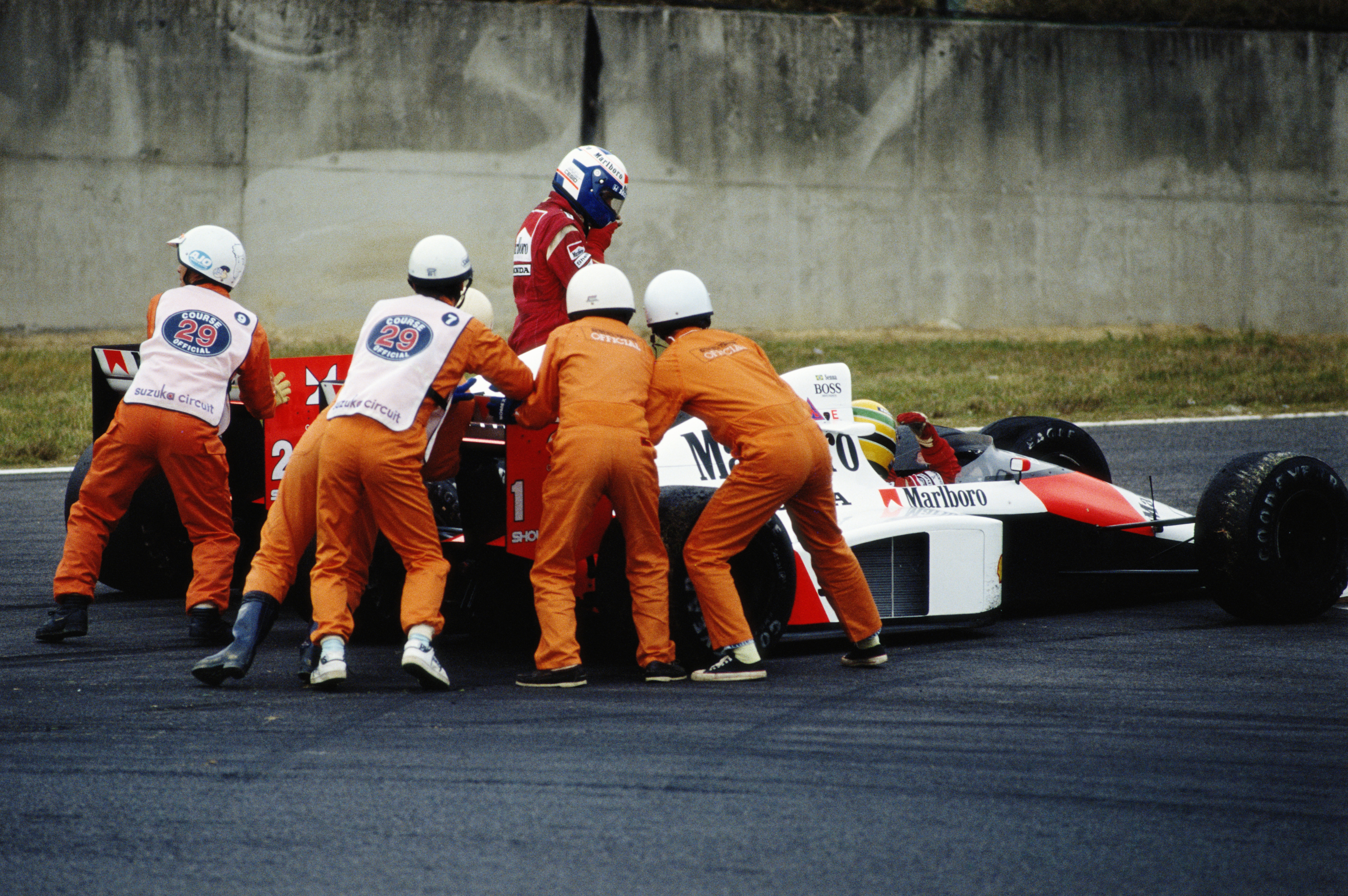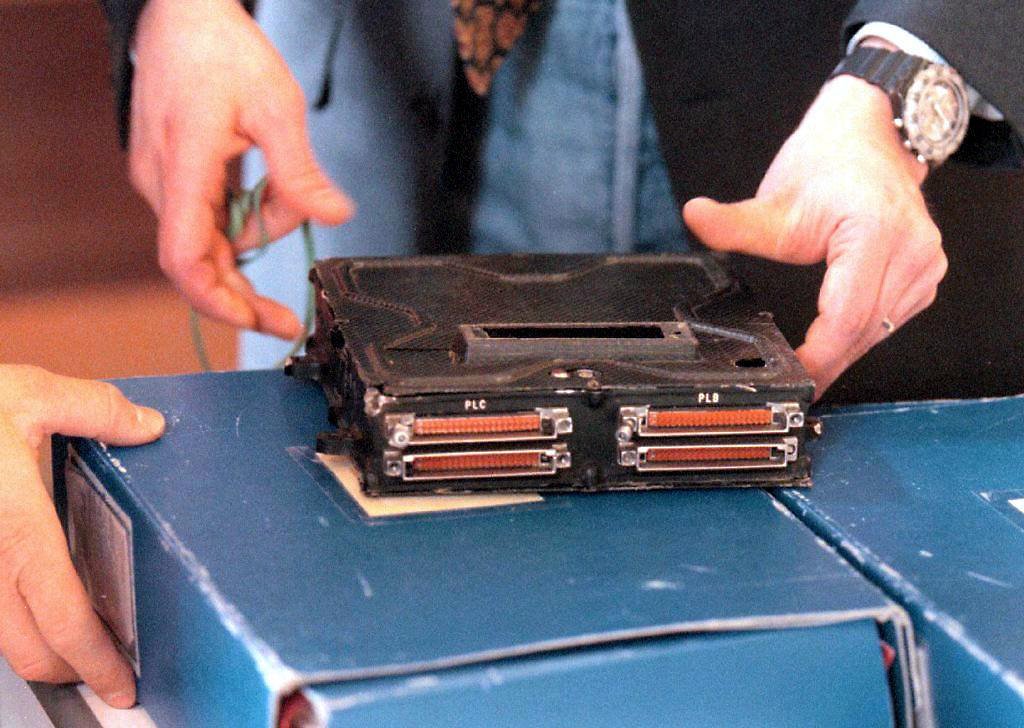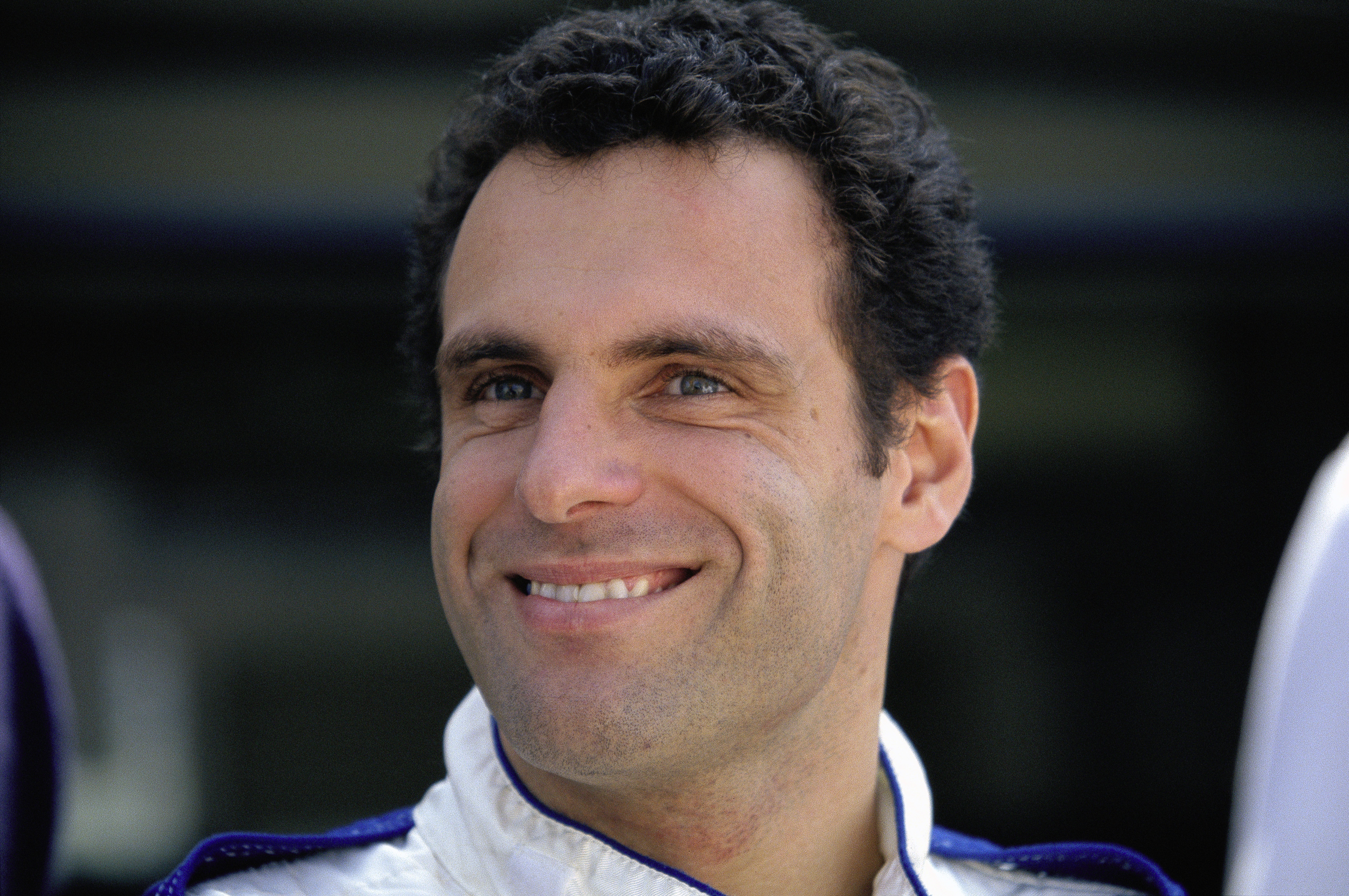But rather than his blue Williams racing car turning into the Tamburello left corner, it sped at 190mph straight into a concrete barrier.
Thirty years on from the three-time world champion’s death, serious questions still remain about how a man revered as the motorsport’s greatest talent could have lost control of his hi-tech vehicle.
Was it really a driver error? Or were ill-judged modifications to Senna’s car to blame?
Investigators in Italy believed members of the British-based Williams team were at fault.
Conspiracy theorists have asked why it took the company a month to hand over the black boxes to the authorities and why they arrived so badly damaged.
But fingers were also pointed at bumps in the historic Imola circuit.
On top of that, there were questions as to whether debris had properly been removed from the track following an earlier collision. Could a shard of metal have interfered with Senna’s racing car?
The risk of racing was clear because the day before, 33-year-old Austrian driver Roland Ratzenberger suffered a fatal crash.
Jordan’s Rubens Barrichello had been lucky to get out alive following a high speed smash on the Friday.
Critical issues about the car’s safety were largely skirted over in the Bafta-winning 2010 documentary Senna.
And today no one knows why his life ended at the age of 34.
Thankfully, improvements introduced following his death has meant Ayrton was the last F1 driver to die during a race.
That has only added to his legacy.
Ben Hunt, The Sun’s F1 correspondent, says: “There is no other sporting icon who is celebrated in such a way.
“The livery of his iconic crash helmet, featuring the colours of the Brazilian flag, are seen at every race on the calendar.”
Here we look at the possible causes
Car trouble?
There were plenty of problems facing Williams and its reported £16million-salary star signing Senna in the weeks running up to the crash.
Williams drivers had won the previous two Formula One championships, but new rules had cut into their reliance on electronic devices.
Ayrton struggled with the latest vehicle, admitting at the start of the season: “The cars are very fast and difficult to drive. We’ll be lucky if something really serious doesn’t happen.”
As is common in motorsport, he liaised with the team’s engineers to change the set-up, including adjusting the steering column.
Senna did not appear to turn the wheel on the seventh lap as he approached the bend and instead went into the wall.
During the crash part of the suspension had penetrated his helmet, causing a fatal head injury.
The steering wheel was found to be broken.
Italian prosecutors alleged that it had snapped prior to impact, leaving Senna unable to control his speeding vehicle.
They charged the team’s founder Sir Frank Williams, technical director Sir Patrick Head and chief designer Adrian Newey with manslaughter.
At the trial the prosecution said: “The steering column had been cut and a new element – which was not of the same quality of metal or of the same diameter, being 18mm instead of 22mm – was welded in.
A complete stranger came up to me and said ‘Your dad is a murderer’
Claire Williams
“And it was where the new element had been welded that the column broke.”
The Williams team analysis showed the steering column was not to blame and all three men were acquitted.
In 2003 the Italian courts reopened the case and in 2007 determined that the steering column was responsible, but by that point it was too late to rearrest anyone for manslaughter.
Newey admitted in his 2017 autobiography: “Regardless of whether that steering column caused the accident or not, there is no escaping the fact that it was a bad piece of design that should never have been allowed to get on the car.”
While people in the sport do not blame the legendary Sir Frank, who died in 2021, some members of the public did.
Sir Frank’s daughter Claire Williams remembered a year after Senna’s death “being in a pub, a complete stranger came up to me and said ‘Your dad is a murderer’.”
Unsafe track?
There were concerns about the Tamburello corner on which Senna’ fate was sealed.
A number of drivers had come off at that corner, including Gerhard Berger who’d gone up in flames in 1989.
But all of the incidents were linked to car trouble rather than the track design.
Senna, though, had noticed ripples on that bend during practice.
There is no other sporting icon who is celebrated in such a way
Ben Hunt
Just before the San Marino race he said about the track: “My car reacts a bit nervously on this kind of surface.
“It stems from the special aerodynamics but it’s also got to do with a difficulty in the suspension.”
The Italians charged three senior men connected to the track, Federico Bendinelli, Giorgio Poggi and Roland Bruynseraede, with manslaughter.
State prosecutor Maurizio Passarini claimed that a raised edge at the Tamburello corner launched the Williams car into trouble.
The three men were found not guilty by a judge in 1997.
‘Modern F1 misses a Senna’
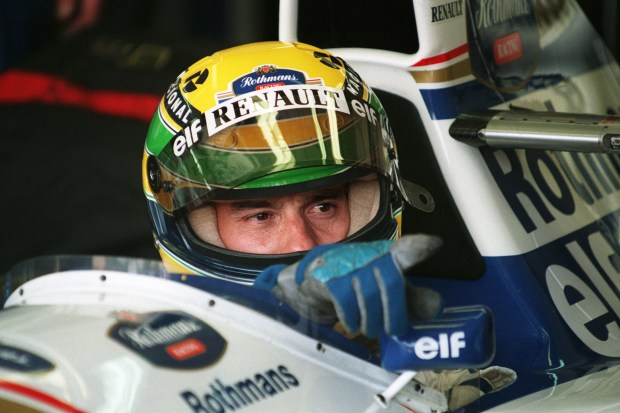
By Bent Hunt, The Sun’s F1 Correspondent
SENNA still has global appeal with new fans attracted by the ‘Drive to Survive’ boom.
So why is he so popular?
One simple explanation is that he was a brilliant driver, which of course we know and there is simply not enough room to pick out the evidence of this.
Another aspect was the dark arts. The ability to mix sport with politics to achieve what he wanted or perhaps what he felt he deserved.
He coupled this with his attitude on track, taking matters into his own hands and stepping over the line, such as deliberately ramming Alain Prost in Japan 1990, influencing the outcome of the title.
Questionable morals perhaps, but taking it to the limit and going beyond is now almost celebrated.
Senna offered a new level of professionalism but with it a complexity within his own personality.
Magnetic charm and a level of charisma that is unthinkable among today’s drivers on the grid.
Senna was intelligent, opened up with honesty and discussed the dangers he faced, putting his life on the line each time he went out to race.
He appealed to and intrigued the public in equal measure. He had a personality.
And that’s something that F1 desperately misses right now.
Race debris?
At the start of the race Bennetton’s JJ Lehto stalled and an unsighted Pedro Lamy in a Lotus piled into his car, sending pieces of their vehicles into the crowd and on to the grid.
A safety car was brought out so that the debris could be collected and then the race restarted.
But a photograph in Autosport magazine suggested that Ayrton’s car passed over one piece.
Could that have caused a slow puncture?
Williams’s Adrian Newey said in 2017: “His right front and right rear tyres were destroyed in the accident, so it was impossible to examine them, but debris that size could have caused a slow puncture.
“The puncture would have caused the bottoming we saw, and that in turn would have caused the rear to step out as it lost grip.”
Driver error?
Ayrton Senna is regarded as one of the greatest ever racing drivers – with his fearlessness putting him on the podium.
He had a reputation for pushing his machines to their absolute limits.
On top of that the Brazilian hated losing, admitting: “Being second is to be the first of the ones who lose.
“Winning is like a drug. I can’t settle for second or third in no circumstances whatsoever.”
In 1990 he knew he would become world champion if his great rival Alain Prost did not finish the Japanese Grand Prix.
At the first turn he ran into the back of Prost’s Ferrari taking them both out of the race.
Some observers believed it was deliberate and Senna later admitted: “I didn’t care if we crashed.”
Is it possible that Senna was simply racing too hard at San Marino in 1994 in order to keep ahead of Michael Schumacher who was not far behind him in second place?
Black Box controversy
Senna’s Williams car was fitted with two black box recorders designed to keep data safe if there was a crash.
They were similar to the devices on aeroplanes, but not as robust.
A senior member of staff at the San Marino track told the 1997 trial that two members of the Williams team removed the recorders shortly after the crash.
After giving evidence Fabrizio Nosco told journalists: “I have seen thousands of these devices and removed thousands for checks.
“The two boxes were intact, even though they had some scratches. The Williams device looked to have survived the crash.”
It took the Williams team over a month to hand over the black boxes to the crash investigators.
When they arrived they were too badly damaged to yield the information needed to determine the exact cause of the accident.
Other witnesses told the court they were wrecked by the high speed impact of the Williams vehicle hitting the wall.
